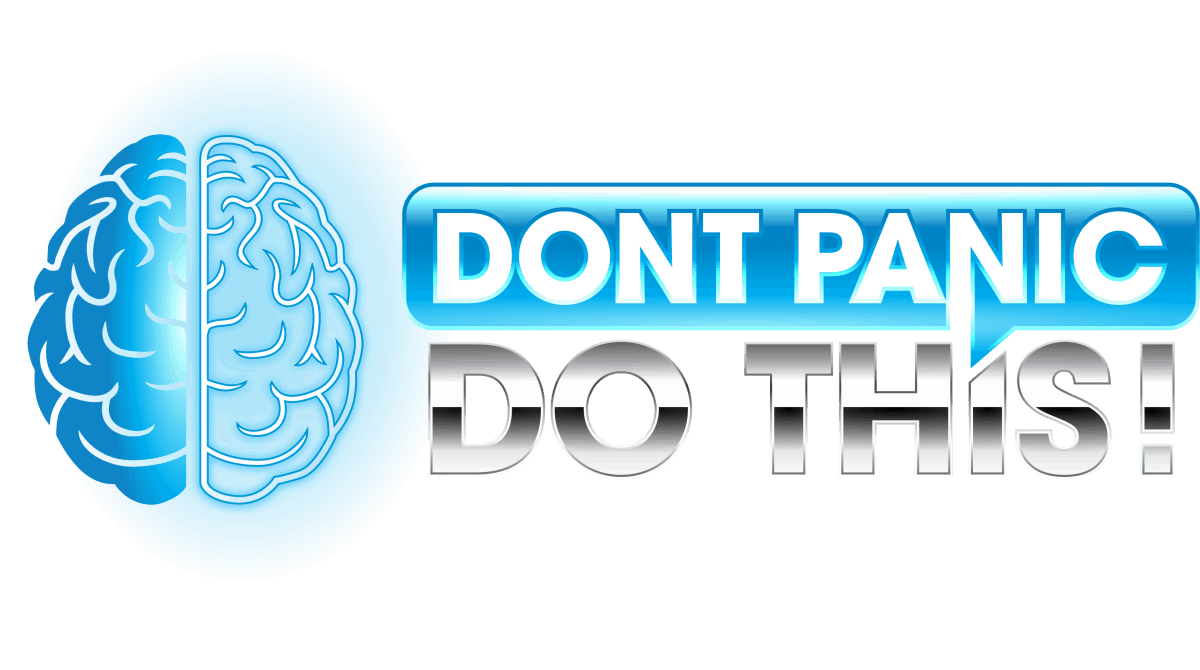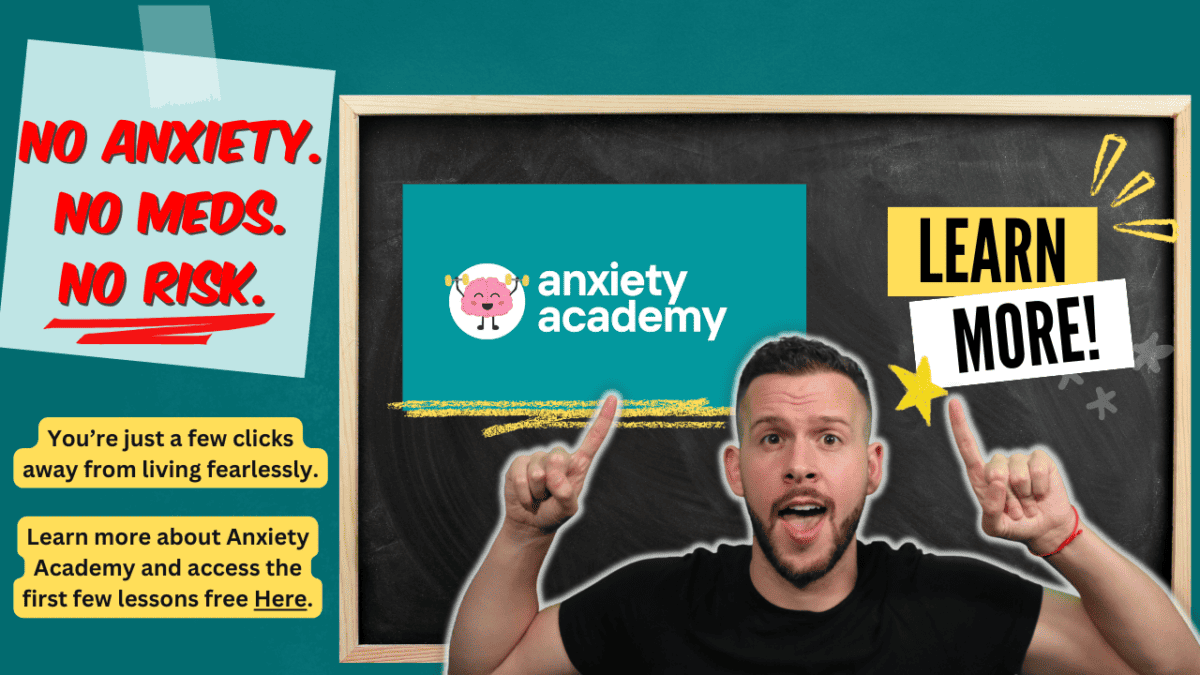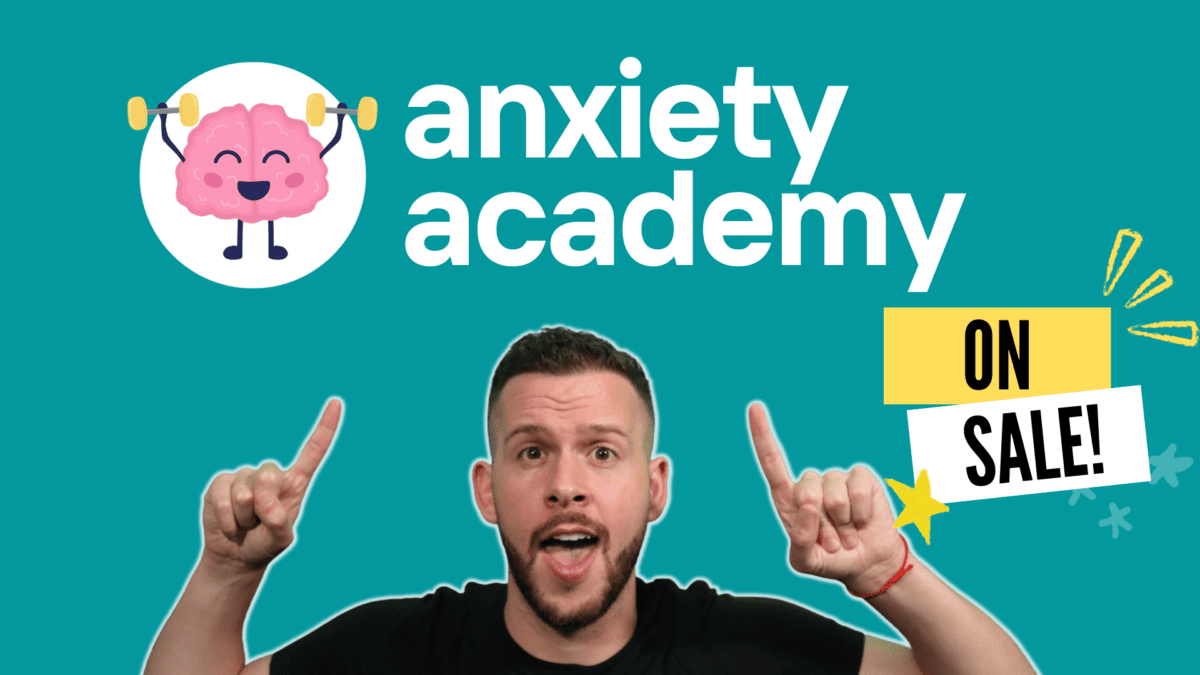If you’ve ever enjoyed a few too many drinks on a night out with friends, you know how brutal hangovers can be. Besides nausea and headaches, we're also more likely to experience anxiety the day after drinking; a hangover symptom sometimes called “hangxiety.” But is there a hangxiety cure?
The best hangxiety cure is to avoid overdrinking in the first place. If it’s too late for that, hangover supplements containing DHM, or natural supplements that restore GABA levels are the next best options. Hangxiety typically lasts for about 48 hours after the alcohol has left the bloodstream.
Being a frequent social drinker myself, I’ve experienced hangxiety on many occasions. In just a moment, I’ll explain – in detail – my personal hangxiety cure. This is what I always do to stop anxiety the day after drinking.
But first, let’s start by talking a bit about the basics (just remember, I am not a doctor!).
What is Hangxiety?
Hangxiety is the general sense of increased anxiety that we experience a day or two after drinking alcohol. For these few days, hangxiety can make us feel jittery, confused, or just generally stressed out. This is due to something called GABA rebound.
I say this quite often, because of how true it is: There is no such thing as a free ride when it comes to drugs.
Alcohol is no exception – anytime we consume a drug, our body will need to compensate for it in some way. GABA is the major calming neurotransmitter in the brain. Alcohol works by binding to the GABA-a receptors so that we feel less anxious or inhibited. The next day, however, our GABA levels (amongst other important neurotransmitters) are depleted as we experience GABA rebound.
Since it’s GABA that keeps us calm, relaxed, and focused, we feel the opposite with our GABA levels lowered. It’s important to remember that there are actually a number of reasons we feel crappy after drinking – dehydration, an irritated stomach, and diminished dopamine and serotonin levels can also contribute to our hangover. With regard to hangxiety, however, those GABA levels are going to be the biggest culprit.
When I would experience hangxiety (prior to figuring out my hangxiety cure ritual), it would usually just become a lazy day for me. Simple tasks like ordering food at a drive through would cause me to feel more socially anxious than usual. Focusing would be more difficult for me, my brain wouldn’t feel like it was “working” quite as well, and I'd be more jittery overall. On these days, I’d vastly prefer to be alone, taking it easy and waiting for the hangxiety to run its course.
How Long Does Hangxiety Last?
Fortunately, GABA rebound is only a temporary setback; hangxiety resolves itself for most people within a day or two. In my experience, like the rest of the hangover, hangxiety can start to be felt as soon as the last bit of alcohol is eliminated from the bloodstream – for most people, this is in the morning after a night of drinking.
Hangxiety can also play a role in our sleep. My sleep can easily be ruined by overdrinking. If I drink a small amount of alcohol and fall asleep, I will wake up with hangxiety once the alcohol has worn off. If I drink a large amount, I'll sleep through that night, but will typically have poor sleep, nightmares, or even nocturnal panic attacks the following night or two.
When Hangxiety Becomes Dangerous – Alcohol Use Disorder
Occasional hangxiety from drinking is uncomfortable, but not inherently dangerous. Feelings of hangxiety may, however, make some people feel uncomfortable enough that they feel pressured to drink again. This is because a hangover is very similar to a mini-withdrawal.
To deal with these feelings of stress and anxiety, some people might want to self-medicate with alcohol. Ultimately, this is a very poor solution for anxiety. Anytime we turn to alcohol to deal with stress, or other psychological issues, we are putting ourselves at great risk of developing alcohol use disorder, or alcoholism. People who already suffer from anxiety may be more likely to succumb to alcoholism and overdrinking than those who are rarely anxious.
It’s none of my business how or why you decide to drink. However, here are three rules I’ve kept in place for myself over the years to avoid alcoholism:
- Don’t drink in an attempt to manage emotional or psychological problems.
- Avoid drinking more than twice per week (but if you’re in college… I get it).
- Never drink alone.
With alcoholism being a popular method of managing anxiety in my own family, I’ve kept these three rules in place my whole life. As a regular social drinker for years, these three rules have served me well; I’ve never craved or consumed alcohol outside of socially appropriate circumstances.
If your hangxiety ever gets too bad, or if you’re frequently feeling the need to drink to cope with your anxiety – speak to a doctor or mental health professional immediately.
What to do When you Have Hangxiety: The Hangxiety Cure
Alright. With formalities out of the way, now we can talk a bit about what you’re really here for. You’re feeling some anxiety the day after drinking and you want to know what the best hangxiety cure is. Here’s what I recommend:
1. Take it Easy for the Day
The first step I recommend is to just take it easy for the day. I understand that some days you may have work or other appointments, and relaxing simply won’t be an option. Okay, no problem; do what you’ve got to do.
If it is possible, however, try and plan your night out in such a way that you don’t have anything important or stressful to take care of afterward. Long past are the days where I could wake up from a bender and head straight to work with a smile on my face.
Take it easy for the day. Why bother pushing yourself and making your hangxiety worse by forcing yourself into stressful or uncomfortable situations? I’m usually all for leaving your comfort zone and taking anxiety head-on, but this isn’t really the day to do it. Sleep in, relax, and let your body fix the mess you’ve made.
2. Make Some Stress Relief Tea
Hangxiety is usually pretty mild in nature, making a natural stress relief tea one of my favorite options for fighting it. Ingredients like chamomile and valerian can help us to feel more relaxed and less stressed. Teas that include passionflower can help provide a natural way for us to replenish our brain’s GABA levels. I’d avoid black tea, green tea, or any other caffeinated beverages while you’ve got hangxiety.
For a full review of my favorite stress relief tea for anxiety, check out this article. One cup of this stuff all but eliminates any feelings of anxiety I may be having. Best of all, having a cup before bed helps to counteract the poor sleep that I usually get while hungover, and prevents sleep anxiety for me.
3. Put some Lavender in an Essential Oil Diffuser
Like the tea, this is a safe, quick fix to take the edge off the worst of your anxiety. Essential oil diffusers are great, and lavender is arguably the most popular essential oil for anxiety. It’s not a miracle cure, but it can definitely take hangxiety down a few notches.
Here’s a great essential oil diffuser I found online that includes various different oils. Experiment a bit and see if there’s a specific aroma that helps you to relax better than others. Scents that evoke pleasant memories, such as nostalgic scents from your childhood, can also work like a charm for some.
4. Take Hangxiety Pills: Cheers for Hangxiety
In recent years, smart entrepreneurs have realized that there’s a market for crushing hangxiety. There are now a number of products available – In the form of powders, pills, or drinks – that can help us to manage hangovers and feelings of hangxiety.
I like to take a product called Cheers for hangxiety. I simply take three of these hangxiety pills after drinking, before I go bed. I personally use Cheers for hangxiety relief, but it also works to resolve the rest of your hangover. There are a number of ingredients in Cheers that help to prevent or reduce a hangover, including:
- Vitamins C, E, B1, B6, B12
- Sodium
- Potassium
- Vine Tea Extract (98% Dihydromyricetin)
- L-Cysteine HCL
- N-Acetyl-L-Cysteine
- Milk Thistle
- Prickly Pear
- Ginger
I won’t bore you with the details of how each of these ingredients can help to reduce a hangover and the damage done to our body by alcohol. I will, however, talk a bit about the most important ingredient with regard to hangxiety – Dihydromyricetin (or DHM).
Taking Cheers for hangxiety works so well because of the large amount of DHM contained within their hangxiety pills. DHM seems to work by helping our body to metabolize and break down alcohol faster; in other words, our hangover isn’t quite as bad and it doesn’t last quite as long. Additionally, DHM seems to bind to the GABA-a receptors – giving us some temporary relief from an otherwise abrupt and brutal GABA rebound.
I’ve been taking Cheers for hangxiety for a while now and am very happy with the product. I wouldn’t say that it relieves my hangover entirely (to be fair, I drink quite a bit when I go out socially), but it definitely makes it much more manageable; with Cheers, I only experience a slight headache, versus having a major headache, nausea, and hangxiety.
Give it a shot, you can buy Cheers hangxiety pills here. If you’re only concerned with hangxiety, their “Restore” pills are the ones you want. Feel free to add some of their other products to the cart if you want an additional edge on your hangover. I haven’t tried the others yet, so I can’t give an opinion there.
5. Actively Relax with Yoga or Meditation
Yoga and meditation are both excellent ways to reduce hangxiety. They can even be done from the comfort of your own home if you so choose. Practices like mindfulness meditations, tense and release exercises, yoga poses, and breath work can all help to reduce stress and anxiety. Incorporating these practices into your daily life can be ideal, but even using them occasionally to get through your hangxiety is great too. Learn more about yoga here, or about meditation here. We’ll help you get started.
Can I Get Hangxiety from Other Drugs Besides Alcohol?
Up until this point, we’ve solely been talking about hangxiety as a result of drinking alcohol. You may be wondering whether or not the use of drugs besides alcohol can result in a similar state of hangxiety. The simple answer to this is: "Yes." Realistically, hangxiety is just a cute term to describe the increased state of anxiety we feel during GABA rebound. And alcohol is not the only substance capable of causing GABA rebound.
Any drug that artificially and temporarily floods our GABA receptors is capable of causing GABA rebound, thus causing hangxiety. Of all the anxiety supplements I’ve used throughout my life, phenibut has been among my favorite for a moderate to large reduction of anxiety. However, I have also felt a strong sense of GABA rebound and hangxiety the day or two after using phenibut – even more so, perhaps, than with alcohol.
So yes, it is absolutely possible to get hangxiety from other drugs besides alcohol.
The key to minimizing hangxiety, with any drug, is moderation. Don’t overdo it and you’ll be less likely to mess up the balance of neurotransmitters in your brain. If all else fails, you can always resort to the hangxiety cure ritual.


